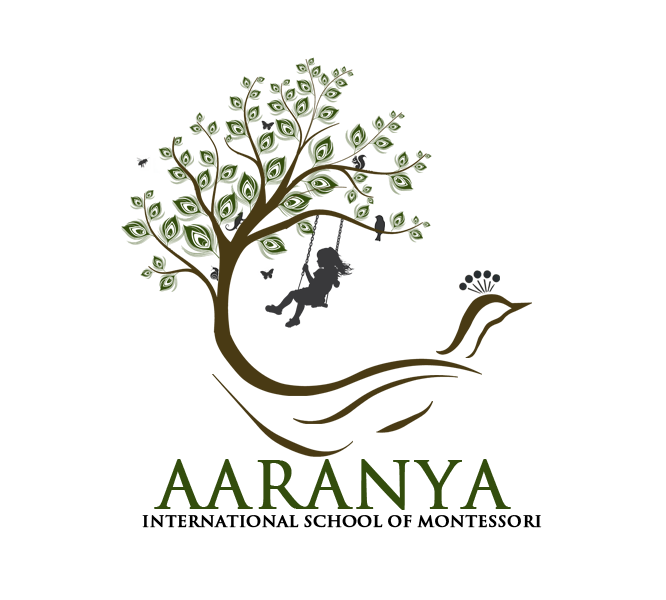Facilities Overview
Our Young Pre classroom is for ages. This age group is working on developing their fine and gross motor skills, that are gaining independence and developing their social skills through play.
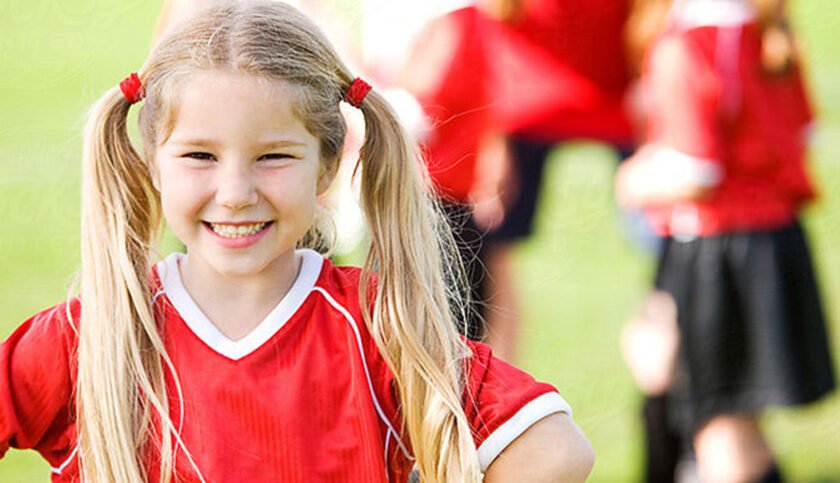
Classrooms
Each classroom is designed to be welcoming, with ample natural light and ventilation. The furniture and layout are arranged to support free movement and independence, ensuring children feel safe and comfortable.
The classroom materials are made from locally sourced, eco-friendly resources like bamboo, clay, and natural wood. This reflects a commitment to sustainability and a connection to the local environment.
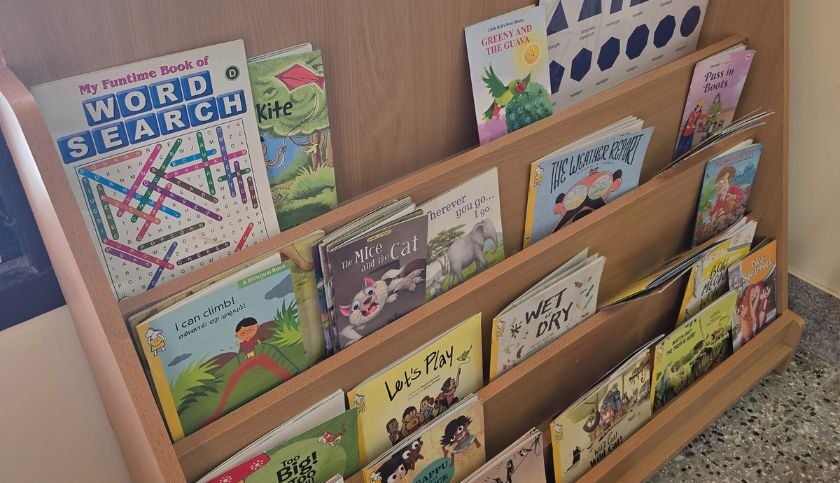
Library
The library focuses on a range of books that include Tamil literature, folk tales, and nature guides, along with global Montessori educational resources. This helps children explore both their cultural heritage and broader, international perspectives.
An engaging space where children can join reading sessions, discuss stories, and participate in book-themed activities, fostering a love for literature and language.
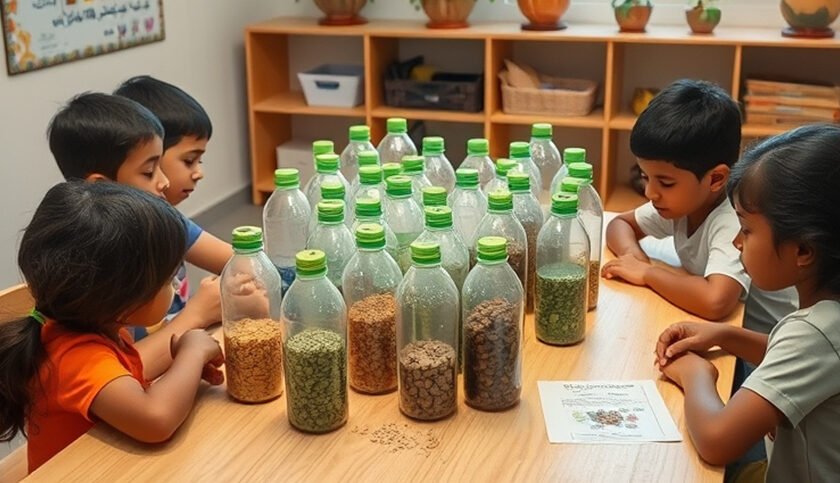
Seed Bank
A facility dedicated to collecting, preserving, and studying indigenous seeds. This promotes biodiversity and educates students about traditional crops and sustainable farming practices.
Students learn about seed saving, germination, and the importance of crop diversity.
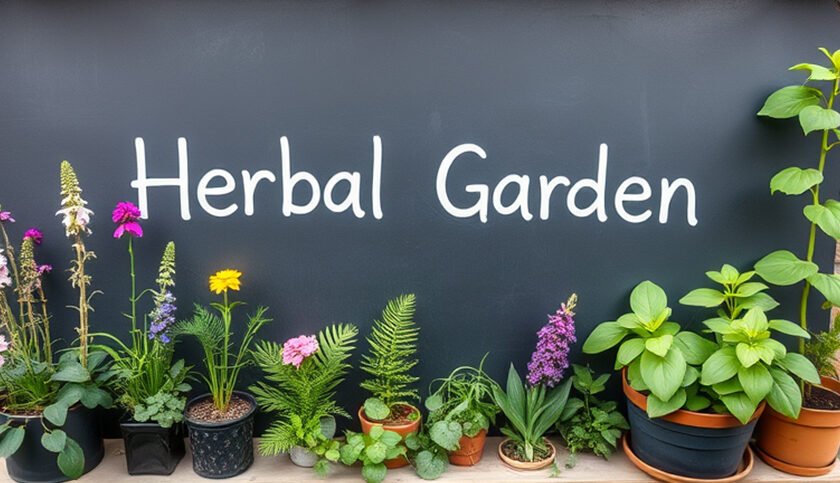
Herbal Garden
A garden that features a variety of herbs known for their medicinal properties, echoing traditional Tamil practices in herbal medicine.
Children can learn to identify, grow, and understand the uses of plants like tulsi, neem, and aloe vera, fostering an appreciation for natural remedies.
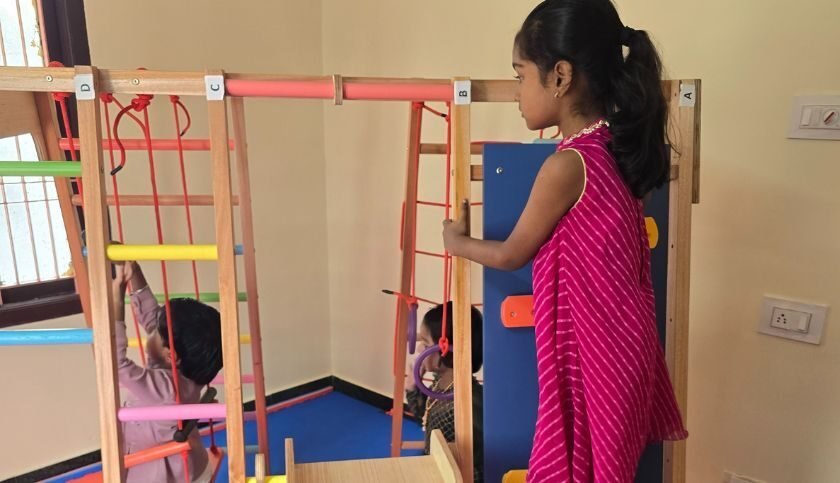
Jungle Gym
A play area designed with ropes, climbing walls, and balance beams, encouraging children to develop strength, coordination, and motor skills.
The jungle gym incorporates elements that mimic natural environments, inspiring creative play and exploration.

Cultural Center
A dedicated space for learning traditional Tamil music, dance, and visual arts. Children can explore instruments like the ‘mridangam’ and ‘veena,’ practice folk dances, and engage in traditional painting and crafts.
Weekly sessions teach children about local festivals like Pongal, Deepavali, and Navaratri, helping them understand the cultural significance, rituals, and stories associated with these celebrations.
These facilities work together to create a holistic educational environment that merges traditional values with modern Montessori practices, emphasizing sustainability, culture, and hands-on learning
Scientific Observation in Montessori Education
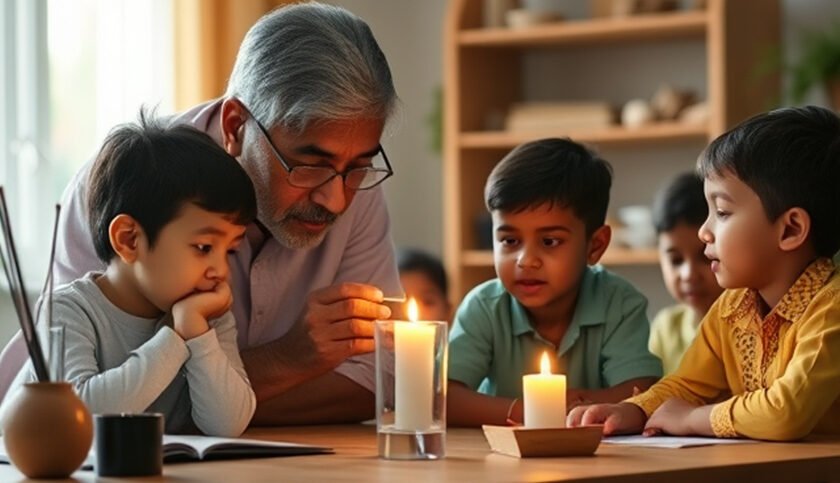
Rooted in Maria Montessori’s Philosophy
- Observation is a cornerstone of the Montessori approach.
- Teachers act as scientists, carefully studying each child’s needs and progress.

A Child-Centric Approach
- Focus on individual learning styles and developmental stages.
- Adapts the environment to meet the child’s unique needs.
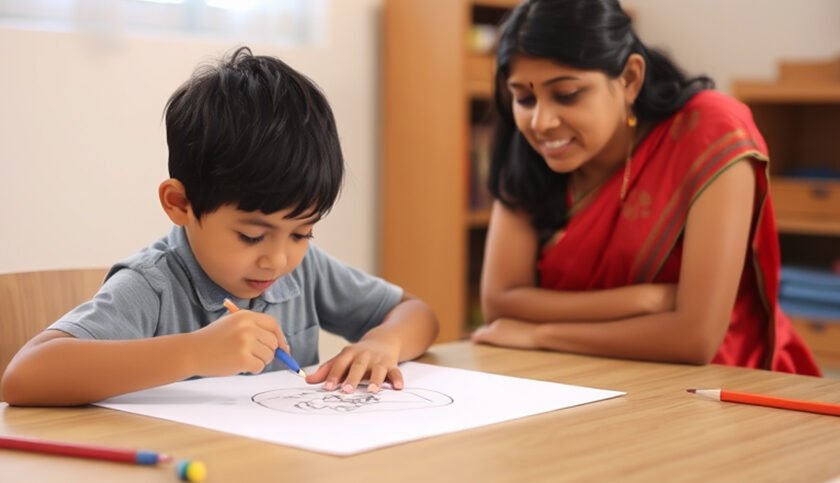
Observation Without Intervention
- Teachers observe without interrupting the child’s concentration.
- Encourages independence and confidence.
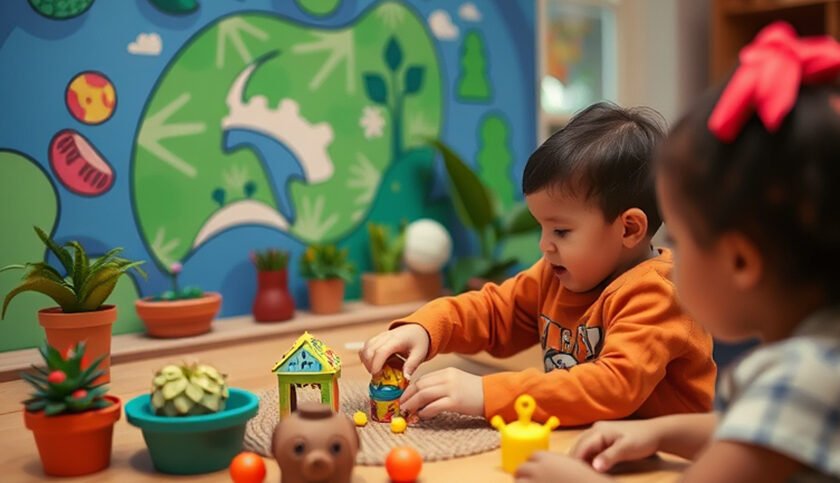
Enhancing Prepared Environments
- Observations guide the preparation of learning materials.
- Ensures the environment aligns with children’s interests and abilities.
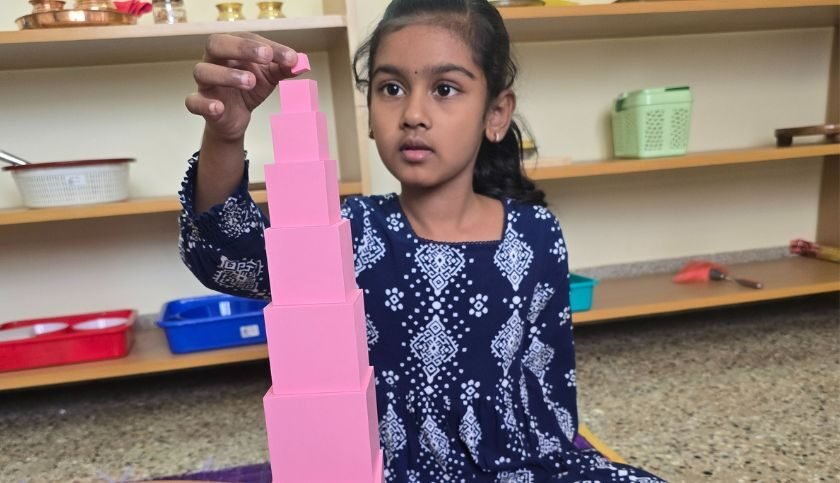
A Continuous Process
- Daily, systematic observations are recorded and analyzed.
- Helps in refining teaching strategies and lesson plans.
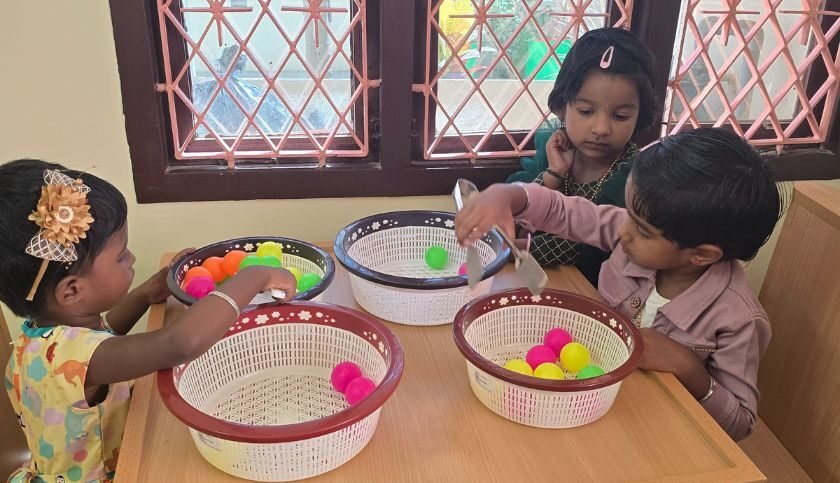
Benefits for the Child
- Builds autonomy, curiosity, and self-discipline.
- Encourages problem-solving and critical thinking.

A Tool for Inclusive Education
- Identifies and supports children with special needs.
- Tailors learning experiences for diverse abilities.
In Montessori classrooms, observation is not just a tool – it is a bridge to understanding and nurturing each child’s potential.
Social Responsibility
At our Montessori school, we are dedicated to fostering a sense of social responsibility in both our practices and our educational approach.
Sustainable Practices
The school is built using natural, sustainable materials, ensuring a minimal environmental footprint. Classrooms are designed to be energy-efficient, with natural ventilation and lighting.
Students actively participate in organic farming activities, learning about sustainable agriculture and the importance of preserving natural resources. This hands-on approach instills values of sustainability from a young age.
We emphasize waste reduction through recycling, composting, and the responsible use of materials. Students learn about the importance of reusing and recycling, contributing to an eco-conscious mindset.
Community Involvement
The school partners with local farmers and artisans, sourcing materials and produce directly from them, supporting the local economy and promoting sustainable livelihoods.
Regular community programs, workshops, and events are organized to raise awareness about environmental conservation, traditional arts, and local culture. Students actively participate, learning the value of giving back to their community.
The school engages in outreach activities such as organizing tree planting drives, cleanliness campaigns, and educational sessions in nearby villages to promote sustainable living practices.
Through these initiatives, the school aims to nurture responsible, empathetic individuals who understand the importance of sustainability and are committed to making a positive impact in their communities.
LOCATION: PORTLAND
To heighten self-awareness and enhance self-esteem through acceptance.
TEACHER-STUDENT: 1:5
To heighten self-awareness and enhance self-esteem through acceptance.
REPRESENTATION
To heighten self-awareness and enhance self-esteem through acceptance.

